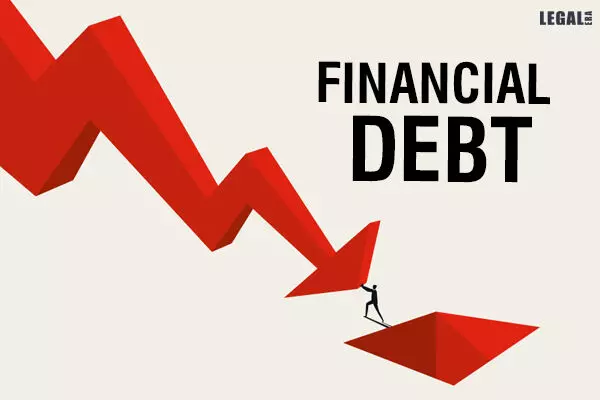- Home
- News
- Articles+
- Aerospace
- Artificial Intelligence
- Agriculture
- Alternate Dispute Resolution
- Arbitration & Mediation
- Banking and Finance
- Bankruptcy
- Book Review
- Bribery & Corruption
- Commercial Litigation
- Competition Law
- Conference Reports
- Consumer Products
- Contract
- Corporate Governance
- Corporate Law
- Covid-19
- Cryptocurrency
- Cybersecurity
- Data Protection
- Defence
- Digital Economy
- E-commerce
- Employment Law
- Energy and Natural Resources
- Entertainment and Sports Law
- Environmental Law
- Environmental, Social, and Governance
- Foreign Direct Investment
- Food and Beverage
- Gaming
- Health Care
- IBC Diaries
- In Focus
- Inclusion & Diversity
- Insurance Law
- Intellectual Property
- International Law
- IP & Tech Era
- Know the Law
- Labour Laws
- Law & Policy and Regulation
- Litigation
- Litigation Funding
- Manufacturing
- Mergers & Acquisitions
- NFTs
- Privacy
- Private Equity
- Project Finance
- Real Estate
- Risk and Compliance
- Student Corner
- Take On Board
- Tax
- Technology Media and Telecom
- Tributes
- Viewpoint
- Zoom In
- Law Firms
- In-House
- Rankings
- E-Magazine
- Legal Era TV
- Events
- Middle East
- Africa
- News
- Articles
- Aerospace
- Artificial Intelligence
- Agriculture
- Alternate Dispute Resolution
- Arbitration & Mediation
- Banking and Finance
- Bankruptcy
- Book Review
- Bribery & Corruption
- Commercial Litigation
- Competition Law
- Conference Reports
- Consumer Products
- Contract
- Corporate Governance
- Corporate Law
- Covid-19
- Cryptocurrency
- Cybersecurity
- Data Protection
- Defence
- Digital Economy
- E-commerce
- Employment Law
- Energy and Natural Resources
- Entertainment and Sports Law
- Environmental Law
- Environmental, Social, and Governance
- Foreign Direct Investment
- Food and Beverage
- Gaming
- Health Care
- IBC Diaries
- In Focus
- Inclusion & Diversity
- Insurance Law
- Intellectual Property
- International Law
- IP & Tech Era
- Know the Law
- Labour Laws
- Law & Policy and Regulation
- Litigation
- Litigation Funding
- Manufacturing
- Mergers & Acquisitions
- NFTs
- Privacy
- Private Equity
- Project Finance
- Real Estate
- Risk and Compliance
- Student Corner
- Take On Board
- Tax
- Technology Media and Telecom
- Tributes
- Viewpoint
- Zoom In
- Law Firms
- In-House
- Rankings
- E-Magazine
- Legal Era TV
- Events
- Middle East
- Africa
NCLAT Chennai: Compulsory Convertible Debentures With No Repayment Obligation Classified As Financial Debt

NCLAT Chennai: Compulsory Convertible Debentures With No Repayment Obligation Classified As Financial Debt
The National Company Law Appellate Tribunal, Chennai Bench, with Justice Rakesh Kumar Jain (Judicial Member) and Shri Ajai Das Mehrotra (Technical Member), ruled on an application under Section 9 of the Insolvency and Bankruptcy Code, 2016 (IBC, 2016) in the case of Shubham Corporation Private Limited v. Kotoju Vasudeva Rao. They determined that Compulsory Convertible Debentures lacking repayment obligations should be categorized as Financial Debt under the IBC.
Vajra IOT Private Limited (Operational Creditor/ Respondent) initiated Corporate Insolvency Resolution Process (CIRP) against M/s Navayuga Infotech Private Limited (Corporate Debtor). Mr. Kotoju Vasudeva Rao (Interim Resolution Professional) issued a public announcement inviting claims from creditors. Among the claims received was one from Shubham Corporation Private Limited (Appellant). The claim was recognized as Financial Debt, leading to the inclusion of the Appellant in the List of Financial Creditors and the reconstitution of the Committee of Creditors (CoC) to update the summary of claims. The Respondent filed a counterclaim to reassess the Appellant's claim.
The Appellant argued that according to the Debenture Subscription Agreement (DSA), they were issued debentures that were to automatically convert at the end of 10 years. Additionally, they claimed that only a debenture certificate was provided to them, with no rights of a shareholder granted. Thus, they asserted that their unmatured Compulsory Convertible Debentures (CCDs) should be categorized as Financial Debt.
In contrast, the Respondent contended that the Appellant should not be listed as a Financial Creditor. They argued that the Appellant is solely a CCD holder, whose sole recourse is the redemption of the CCD.
The NCLT noted that including the Appellant in the list of Financial Creditors was not permissible under the law, thus rejecting their status as a Financial Creditor. However, the NCLAT observed that according to the Debenture Subscription Agreement (DSA), the debentures issued to the Appellant were compulsorily convertible into equity either before or automatically at the end of 10 years, without any obligation to repay the debt.
Citing the case of M/s IFCI Limited v, Sutanu Sinha, Company Appeal (AT) (CH) (Ins.) No. 108/2023, the NCLAT referred to the Supreme Court's treatment of Compulsorily Convertible Debentures (CCDs) as equity. The court emphasized that the classification of CCDs as either debt or equity depends on the liability for repayment. If the terms of the CCDs mandate repayment of the principal amount, they are treated as debt instruments. However, if they compulsorily lead to conversion into equity shares, they are considered equity instruments.
Based on this analysis, the NCLAT concluded that the CCDs held by the Appellant should be treated as equity instruments. Consequently, the appeal was dismissed.



